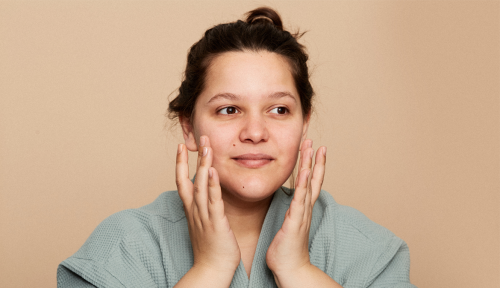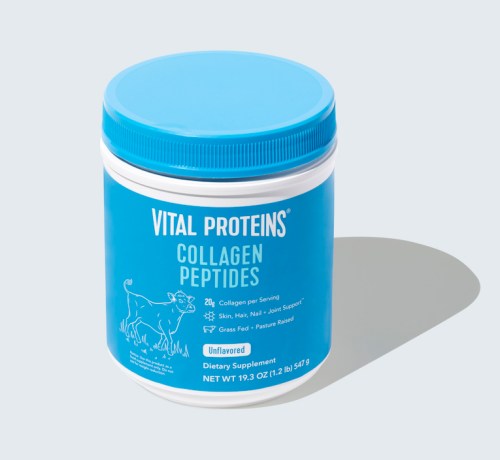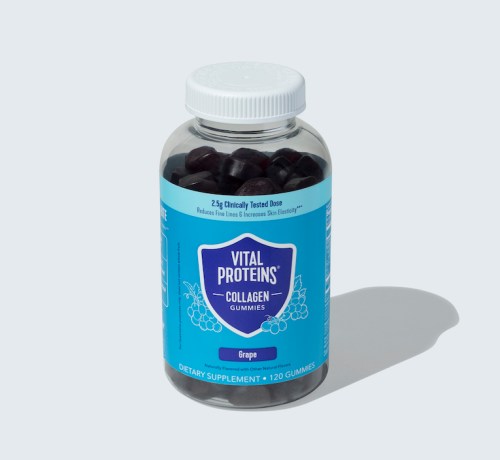advertisement
For My 30th Birthday, I’m Revamping My Wellness Routine—Here Are the Dermatologist-Approved Tips I’m Following
If you're wondering how to take care of your skin after you turn 30, these are the dermatologist-approved tips one editor is following.

Some people’s lives allow them to gently ease into adulthood, periodically checking off one milestone after another as they build their adulting resume. Not mine though. On the docket for me in my 30th year of life (which is a milestone in its own right)? Get married, buy a house, get a promotion, have a baby, and even squeeze in moving to a whole new state if I’m “lucky.”
Are you exhausted just listening to the whirlwind of a year I’m having? Same, which is why on my 30th birthday I made a commitment to myself that the one thing I wouldn’t let fall by the wayside amidst all the commotion was my skin-care routine.
Not only does performing my cleansing-toning-moisturizing ritual twice a day keep me grounded (and keep breakouts at bay—whoever said acne goes away after your teenage years was lying), it’s also helping me hang onto my youthful glow now that my collagen production is slowing down.
It’s true: Collagen production can decrease by up to one percent each year around the time you turn 30, according to board-certified dermatologist Aanand Geria, MD, which is one of the main culprits behind those new fine lines that have cropped up as I’ve entered a new decade.
“Collagen is a type of protein that gives the skin support and structure. It is essential for preserving firmness and elasticity of the skin,” Dr. Geria says. “The production of collagen in the skin begins to decrease in your 30s, which results in less suppleness and the development of fine lines. Additionally, a slowdown in the turnover of skin cells may be observed, leading to a duller appearance of the skin.”
In addition to being the good stuff that keeps your skin bright, collagen helps to keep your nails smooth, your hair shiny and your bones and joints healthy so you can get the most out of your body.**^
The good news is there’s a way to combat the natural decline of collagen: by consuming collagen peptides as a daily dietary supplement. That’s why, determined not to let my whirlwind of a year prevent me from giving my skin the support it needs, I ordered myself a huge tub of Vital Proteins Collagen Peptides and asked Dr. Geria for more insight on exactly how to take care of my skin after 30. Here’s what he had to say.

Vital Proteins Collagen Peptides Unflavored Collagen Powder — $47.00
1. Use a science-backed regimen to help increase collagen production
If I was going to put a slew of skin-care products on my 30th birthday wishlist, I wanted to know which ones a dermatologist actually recommended. Dr. Geria reminded me that less is more when it comes to products, and though everyone’s skin is different, most people can benefit from a simple regimen that includes a cleanser, vitamin C serum, moisturizer, and SPF 30 sunscreen in the mornings, and a cleanser, moisturizer, and retinol in the evenings.
The important part of a skin-care routine is making sure the specific products you’re choosing can support their claims with scientific evidence, Dr. Geria says. That point made me feel even better about my purchase of Vital Proteins Collagen Peptides because it contains real benefits to help me look, feel and move my best—benefits that can help everybody 30+, both male and female.**^
Plus, topical products aren’t the only way to support healthy skin—real benefits can actually start from what you put inside your body, not just what’s applied at the surface. “Studies have shown that taking hydrolyzed collagen supplements for 12 weeks can cause modest improvements in wrinkles, hydration, and elasticity,” Dr. Geria says. “This can easily be incorporated into most people’s routines because collagen supplements come in so many different forms.”
My personal favorite form is the Unflavored Collagen Powder, which I typically stir into my morning coffee. But on days when I skip the caffeine or I’m on the go, I’ve also been loving the convenience of the Collagen Gummies for a bite-sized wellness boost in a yummy grape flavor.

Vital Proteins Collagen Gummies — $18.00
2. Be diligent about sunscreen application
As someone who has traditionally shied away from putting too many products on my skin in fear of causing breakouts (I didn’t even use moisturizer until my 20s), SPF and I have not always been BFFs. But Dr. Geria stressed the importance of committing to daily sunscreen use now that I’m a tricenarian.
“Wear sunscreen with SPF 30+ every single day, rain or shine,” Dr. Geria says. “This will protect against UV radiation which has been implicated in the occurrence of brown spots, fine lines and wrinkles, thinning skin, and skin cancer.”
3. Resist the urge to pick your skin
Will all the recovering pimple poppers please stand up? As I reluctantly get out of my seat, Dr. Geria notes that he’s seen a dramatic uptick in skin picking over the last several years (so it’s not just me!), and that doing so is essentially counteracting any complexion-boosting efforts.
“[Skin picking] is one of the most detrimental behaviors because it can cause scarring, dark marks, and infections,” Dr. Geria says. “It’s important to understand that sometimes skin picking can be associated with anxiety.”
If he means anxiety over being called a pizza face at 30 years old, then yes, that’s me. Something he recommends that’s way more beneficial than taking matters into your own hands is a monthly facial to help decongest pores and exfoliate, in addition to microneedling treatments every three to six months to help rebuild collagen.
“[During microneedling treatments], tiny needles are used to create micro-injuries in the skin,” Dr. Geria says. “As part of the healing response, fibroblasts, which are cells responsible for collagen and elastin production, become activated.”
So there you have it. If you’re wondering how to take care of your skin after 30, it really all leads back to collagen. But armed with these tips and my Vital Proteins Collagen Peptides and Collagen Gummies, my 30-year-old skin and I are about to look the best we ever have. Who says it has to be all downhill after 30, anyway?
**These statements have not been evaluated by the Food and Drug Administration. This product is not intended to diagnose, treat, cure, or prevent any disease.
^Results may vary. Refer to product labels and vitalproteins.com for more information.
Sign up for the Well+Good SHOP Newsletter
Get exclusive deals on wellness, beauty, fitness, and food products that have been hand-picked by our editors.
Got it, you've been added to our email list.




